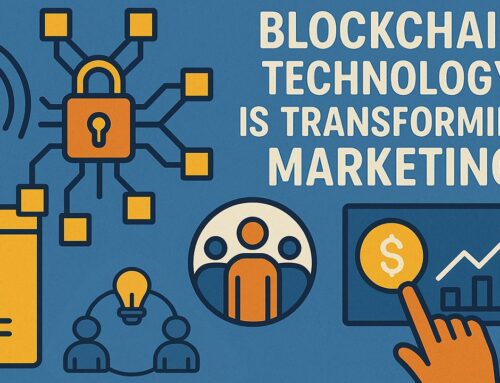The digital marketing landscape is constantly changing, evolving, and growing in complexity. Technologies that were once the stuff of science fiction are now becoming everyday tools for marketers around the globe. The rate of change is accelerating, and what worked a few years ago may not be effective today, let alone tomorrow.
In this guide, we will explore the cutting-edge trends and technologies that are set to define the future of digital marketing. From artificial intelligence to augmented reality, big data to blockchain, you’ll learn about the innovations that are not just reshaping the way businesses market their products and services, but also redefining the way consumers interact with brands.
This article is designed to provide marketers, entrepreneurs, and business leaders with an in-depth understanding of the future trends in digital marketing. We will explore the latest technologies, discuss their implications for marketing strategies, and provide insights on how to leverage these advancements to gain a competitive edge.
You will learn about how artificial intelligence is driving personalization and customer engagement, how augmented and virtual reality are creating immersive brand experiences, how blockchain technology is transforming trust and transparency in digital marketing, and how big data is helping businesses understand their customers like never before.
The trends and technologies we will discuss are not just possibilities or futuristic concepts; they are already in play in various stages of development and adoption. The future is here, and the question is, are you ready to embrace it?
Table of Contents
- Artificial Intelligence in Digital Marketing
- Augmented Reality and Virtual Reality
- Blockchain in Digital Marketing
- Big Data and Analytics
- Final Thoughts
- Sources
Artificial Intelligence in Digital Marketing
Artificial Intelligence (AI) is a powerful tool that is transforming digital marketing in unprecedented ways. AI can analyze vast amounts of data quickly and accurately, enabling marketers to deliver personalized content and experiences, automate processes, and make informed decisions.

AI-Powered Personalization
Personalization is no longer a nice-to-have but a must-have in digital marketing. AI can analyze customer behavior, preferences, and buying patterns to deliver personalized experiences that drive engagement and conversions.
AI-Driven Customer Engagement
Chatbots and virtual assistants, powered by AI, are playing a pivotal role in enhancing customer engagement. They are available 24/7, providing instant responses and solutions to customer inquiries, leading to improved customer satisfaction and loyalty.
Augmented Reality and Virtual Reality
Augmented Reality (AR) and Virtual Reality (VR) are revolutionizing the way brands interact with customers. These technologies create immersive experiences, allowing customers to visualize products in their own environment or experience services in a virtual setting.
Immersive Shopping Experiences
AR and VR enable businesses to offer customers virtual try-ons or immersive product demos, enhancing the shopping experience and influencing purchasing decisions.
Interactive Brand Experiences
AR and VR are also used to create interactive brand experiences, such as virtual tours or games, that engage customers and create memorable connections with the brand.
Blockchain in Digital Marketing
Blockchain technology, best known for powering cryptocurrencies, is making its mark in digital marketing. It offers transparency and security, enabling trust-based marketing and eliminating ad fraud.

Transparent Ad Transactions
Blockchain’s decentralized nature makes ad transactions transparent, traceable, and secure, eliminating the need for middlemen and reducing the risk of ad fraud.
Enhanced Customer Privacy
Blockchain can also enhance customer privacy by giving customers control over their data, a critical factor in an era where data privacy regulations are increasingly stringent.
Big Data and Analytics
Big data and analytics are playing a pivotal role in digital marketing, helping businesses understand their customers and market trends better. These tools provide valuable insights that can inform and guide marketing strategies.
Customer Insights
By analyzing big data, businesses can understand customer behavior, preferences, and buying patterns, enabling them to create targeted and effective marketing campaigns.
Market Trends
Big data and analytics can also provide insights into market trends, helping businesses stay ahead of the curve and adapt their marketing strategies to changing customer needs and preferences.
Final Thoughts
As we look towards the future, it’s clear that digital marketing is set to become more innovative, sophisticated, and customer-centric. The trends and technologies we’ve discussed in this article – artificial intelligence, augmented and virtual reality, blockchain, and big data – are not just reshaping the marketing landscape; they are redefining the way businesses interact with customers.
The most important takeaway is that to succeed in the future, businesses must embrace these technologies and trends. They need to invest in tools and strategies that enable them to understand their customers better, engage with them on a more personal level, create memorable and immersive experiences, and build trust through transparency and security.
In an increasingly digital world, it’s not just about staying ahead of the competition; it’s about staying relevant to your customers. The future of digital marketing is here, and it’s a future where technology and customer-centricity go hand in hand.
Sources
- The Future of AI in Digital Marketing
- The Role of AR and VR in Digital Marketing
- How Blockchain is Changing Digital Marketing
- The Impact of Big Data on Marketing








